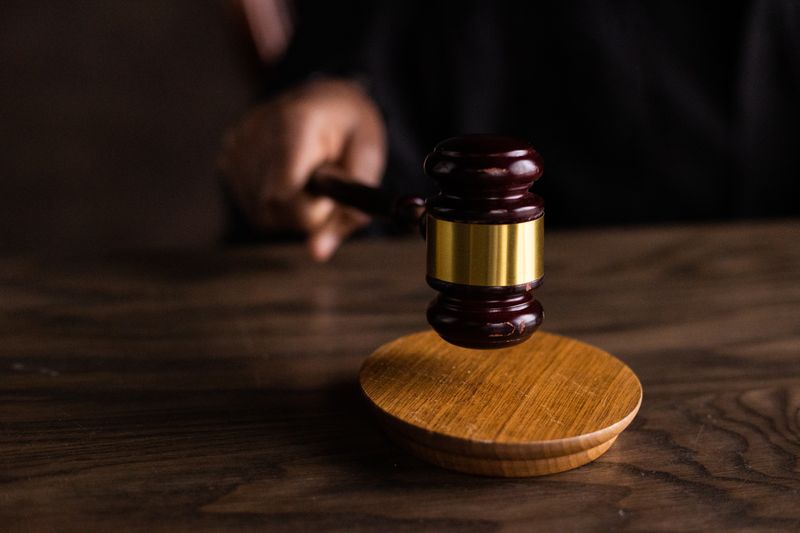Table of Contents
Amnesty International Urges Niger to Protect Human Rights Amidst Ongoing Arrests
Introduction
In the wake of the recent arrests of President Mohamed Bazoum, Interior Minister Hama Amadou Souley, and other political leaders, Amnesty International’s Deputy Regional Director for West and Central Africa, Habibatou Gologo, has called on the new authorities in Niger to release all those who have been arbitrarily arrested and detained. The human rights organization has emphasized the urgent need for Niger to protect and respect human rights, highlighting that no individual should be arrested and detained without a legal basis.
The Continued Violation of Human Rights
The recent arrest of the Oil Minister, Sani Mahamadou, the President of the Parti nigérien pour la démocratie et le socialisme, Foumakoye Gado, and his chief of staff, Karsani Bachirou, on July 30th further demonstrates the ongoing issue of arbitrary arrests in Niger. Amnesty International strongly advocates for the immediate release of these individuals, highlighting the importance of upholding the principle that no one should be deprived of their freedom without due process of law.
Arbitrary Arrests and Detentions
Amnesty International reminds the Niger authorities that anyone who is arrested has the fundamental right to know the reasons for their arrest, access legal representation, be brought before a judge within a reasonable time, and be able to challenge the legality of their detention. These principles, central to the protection of human rights, must be upheld in order to ensure a fair and just legal system.
The Political Crisis in Niger
The current crisis in Niger began on July 26th when Niger’s presidential guard, led by General Abdourahmane Tchiani, staged a coup and arrested President Mohamed Bazoum. In a televised message, General Amadou Abdramane announced that they had overthrown the president, suspended Niger’s Constitution, and established the National Council for the Safeguard of the Homeland (CNSP).
The situation in Niger remains delicate, with ongoing negotiations between the coup plotters and the Economic Community of West African States (ECOWAS) envoy regarding the rehabilitation and release of President Bazoum, who is still being held by the presidential guard. The international community, including ECOWAS, has condemned the coup and expressed concern over the political instability and potential violations of human rights in Niger.
Editorial
The recent events in Niger raise serious concerns about the country’s commitment to democracy and the rule of law. The arbitrary arrests and detentions of political leaders undermine the principles of justice and human rights, undermining the foundation of a functioning democracy.
This crisis presents a critical moment for the new authorities in Niger to demonstrate their commitment to upholding human rights and the rule of law. The immediate release of all individuals being arbitrarily detained is paramount, as it will signal a departure from the repressive tactics of the previous regime and establish a foundation for restoring democratic governance.
In addition to releasing the arrested individuals, it is crucial for the authorities to ensure an independent and transparent investigation into the coups and subsequent human rights violations. This will allow for accountability and justice, and send a clear message that actions such as arbitrary arrests and detentions will not be tolerated in Niger.
Advice
Amnesty International’s call for the protection of human rights in Niger should serve as a wake-up call for the international community to pressure the new authorities to uphold democracy and respect for fundamental freedoms. It is imperative that international organizations, such as the United Nations and the African Union, take a strong stand against the violation of human rights and work towards a peaceful resolution in Niger.
Furthermore, the people of Niger must continue to speak out against these violations and demand that their leaders uphold their rights. They must assert their democratic voice and push for the restoration of constitutional order through peaceful means, without resorting to violence.
Ultimately, the path to stability and prosperity in Niger lies in respecting human rights, promoting democracy, and ensuring that the voices of all citizens are heard and valued. The current crisis presents an opportunity for positive change, but it requires swift and decisive action from both the new authorities and the international community.

<< photo by EKATERINA BOLOVTSOVA >>
The image is for illustrative purposes only and does not depict the actual situation.
You might want to read !
- Authorities in Bangladesh at crossroads: Prioritizing de-escalation and respecting protesters’ rights
- The Healthcare Crisis in Togo: Women Forced to Give Birth on the Floor
- Russia’s Suppression of Dissent: TV Rain Banned for Critical Reporting
- “Examining Russia’s Controversial Use of Cluster Munitions in Ukraine”
- Repercussions of the EU’s Sanctions on Congo and Rwanda Army Officers
- The Disturbing Execution of Two Men in Bangladesh: A Grim Reflection of Human Rights Violations
- Kuwait’s Unsettling Execution Trend: Five Lives Lost in Continuing Spree
- The Ongoing Tragedy of Unjust Drug Executions in Singapore
- Pakistan’s Treatment of Afghan Refugees: Ending Harassment and Arbitrary Arrests